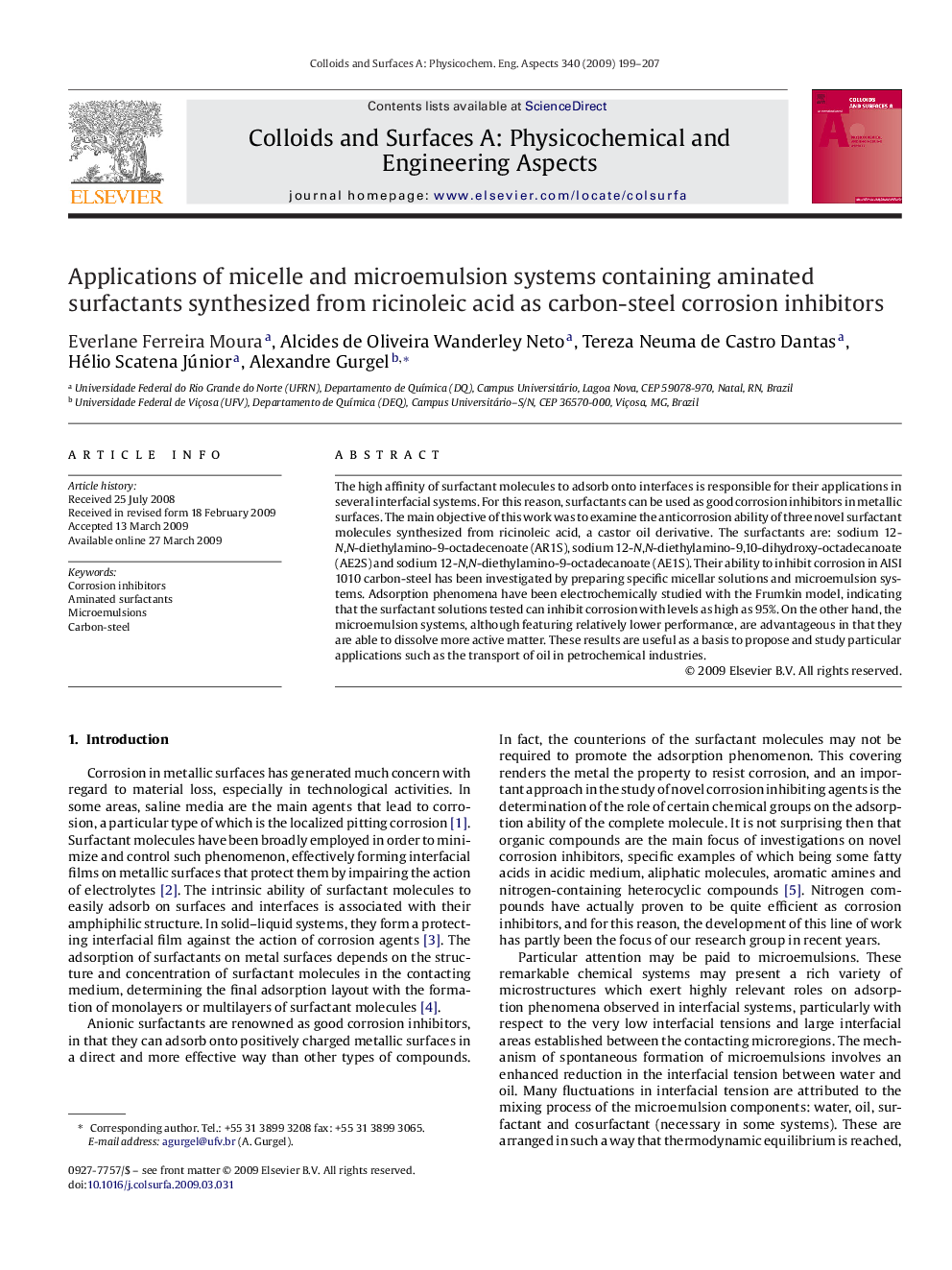| Article ID | Journal | Published Year | Pages | File Type |
|---|---|---|---|---|
| 596025 | Colloids and Surfaces A: Physicochemical and Engineering Aspects | 2009 | 9 Pages |
The high affinity of surfactant molecules to adsorb onto interfaces is responsible for their applications in several interfacial systems. For this reason, surfactants can be used as good corrosion inhibitors in metallic surfaces. The main objective of this work was to examine the anticorrosion ability of three novel surfactant molecules synthesized from ricinoleic acid, a castor oil derivative. The surfactants are: sodium 12-N,N-diethylamino-9-octadecenoate (AR1S), sodium 12-N,N-diethylamino-9,10-dihydroxy-octadecanoate (AE2S) and sodium 12-N,N-diethylamino-9-octadecanoate (AE1S). Their ability to inhibit corrosion in AISI 1010 carbon-steel has been investigated by preparing specific micellar solutions and microemulsion systems. Adsorption phenomena have been electrochemically studied with the Frumkin model, indicating that the surfactant solutions tested can inhibit corrosion with levels as high as 95%. On the other hand, the microemulsion systems, although featuring relatively lower performance, are advantageous in that they are able to dissolve more active matter. These results are useful as a basis to propose and study particular applications such as the transport of oil in petrochemical industries.
